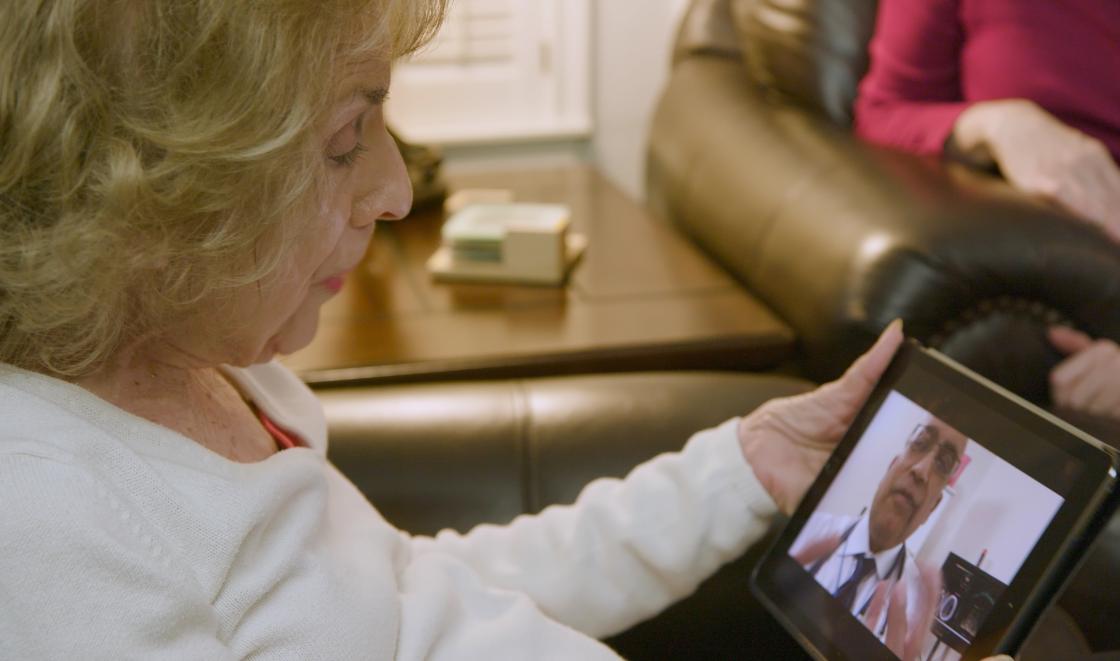Research highlights data quality challenges in evaluating remote consultations
Issues with data quality are limiting our ability to effectively evaluate the impact of remote consultations in England, say researchers from the three NIHR London ARCs.
Issues with data quality are limiting our ability to effectively evaluate the impact of remote consultations in England, say researchers from the three NIHR London ARCs.
The new research, published in the Online Journal of Public Health Informatics, highlights key challenges around health data in England that are hindering research on the impact of remote consultations on health outcomes and makes recommendations to address this.

The Covid-19 pandemic accelerated the adoption of remote consultations across all areas of healthcare in England, with a variety of video, telephone and online platforms being used for patient consultations, instead of face-to-face meetings. In many areas of healthcare, remote consultations are now offered routinely. With any major change like this, it is important to understand the impact on health services and care, and the experience for patients.
The three London ARCs – ARC South London, ARC North Thames and ARC Northwest London, developed a service evaluation designed to do this. It aimed to address a range of evidence gaps to inform the adoption of remote consultation in care settings and identify gaps in data.
The new viewpoint article draws on the researchers’ experience conducting this service evaluation, including their extensive experience in health data linkage, and review of the research evidence conducted as part of the evaluation.
The NHS 10 Year Plan envisages a digitally enabled NHS. We highlight some of the significant barriers that need to be overcome to implement remote monitoring that works for clinicians and for patients. Failure to address these issues may lead to poor decision making due to poor-quality data. We therefore suggest ways forward
The researchers highlight challenges in the quality and linkage of electronic health record (EHR) infrastructures in NHS England, including inconsistencies in data documentation, interoperability issues and limitations in data linkage between primary and secondary care. Much patient information from remote consultations is recorded as unstructured ‘free text’ rather than structured data, making analysis for research and clinical audit more difficult.
Missing or inconsistently recorded information can result from time pressures, varying clinician recording practices, and differences between healthcare settings. While new data analysis techniques allow researchers to extract valuable insights from free text data, this remains limited by cross-system inconsistencies across electronic health record infrastructures and NHS trusts
In England, the multiple software platforms used for remote consultations across NHS trusts often lack integration with existing electronic health record systems, preventing effective data exchange between primary care, secondary care and community health services.
Different healthcare providers use varying definitions of ‘remote consultation’ - some include only telephone and video calls, while others incorporate emails or online patient portal contacts. This inconsistency makes it difficult to compare data across different services and settings.
Effective data linkage is essential to track patient journeys across primary and secondary care and assess the impact of remote consultations on their outcomes. The establishment of a new network of Secure Data Environments should improve access to NHS data through shared and secure working practices, including sharing methods and coding
These data quality issues have significant consequences for healthcare evaluation and planning. Similar studies can yield conflicting results due to variations in data and recording practices. While the results are valid in each context, their variability limits the generalisability of research findings and hinders evidence-based decision making.
Particularly problematic are the impacts on understanding the experiences of vulnerable populations. Patients with dementia, recent migrants, those with language barriers and individuals in socially disadvantaged areas are often underrepresented in remote consultation research due to gaps in data collection. Without comprehensive data on these vulnerable populations, healthcare services risk implementing policies that fail to address their needs.
Inconsistent data also prevents long-term evaluations of remote consultations.
The researchers provide important recommendations to enhance data quality for future evaluations, which are relevant to healthcare systems in England and internationally. They include:
Our research highlights the urgent need of improving data quality to better understand the variations in implementation, uptake and impact of the introduction of remote consultations as they became embedded following the COVID-19 pandemic. Addressing issues related to data standardisation, completeness and linkage will enable more reliable evaluations and support evidence-based decision-making